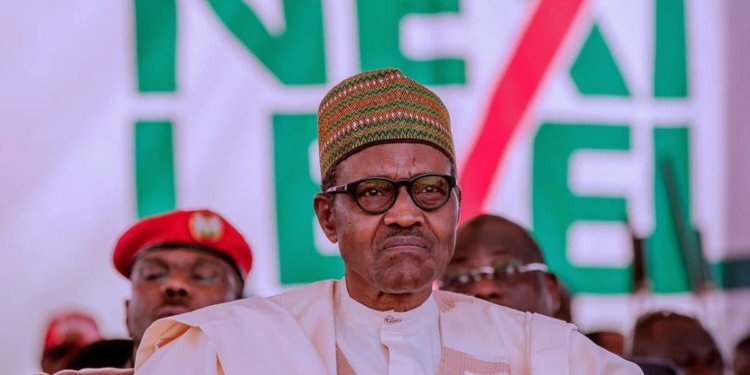The recent teaching policy which highlights a new salary structure for teachers, exposure to training, increased in years of service and retirement age is a ‘prayer’ answered to teachers, parents, and Non-Governmental Organizations that have been on the forefront campaigning for the improvement of education in Nigeria.
While the new policy is exciting to the ‘would-be’ beneficiaries, there have however been concerns of implementation and if the ‘beautiful’ policy was not an attempt to buy the love of the public.
It would be recalled that President Muhammadu Buhari in commemoration of 2020 World Teachers’ Day approved the new special salary scale for Nigerian teachers as well as increased years of service from 35 to 40.
He said there will be a special pension scheme to enable the teaching profession to retain its experienced talents as well as extend teachers’ retirement age to 65 years and the duration of teachers’ years to 40 years.
He said there will be a Special Salary Scale for Teachers in Basic and Secondary Schools, “including provisions for rural posting allowance, science teachers allowance and peculiar allowance”.
Other promises include building low-cost housing for teachers in rural areas, sponsorship to at least one refresher training per annum to benchmark best practices for improved teaching and learning.
“Expansion of the annual Presidential Teachers and Schools Awards to cover more categories and for the outstanding. The payment of stipends to Bachelor of Education students as well as granting them automatic employment after graduation is now a government policy.
“The Tertiary Education Fund (TETFUND) will now fund teaching practice in Universities and Colleges of Education,” he said.
In an exclusive interview with BONews Service, Celestine Okwudili, Governance Manager, Action Aid Nigeria said, “it is highly welcome, it is what we have been campaigning for via Breaking Barrier project that we are implementing and it will change a lot of things in the education sector and most importantly help to improve the state of inclusive education; for learners with disabilities and marginalized children.”

He, however, raised concerns about the implementation of the policy, “knowing Nigeria, we’re good with policy but we have challenges with implementation.
“This is not the time to relax that the President has made the pronouncement, we should be certain about the next line of action. One expects that there should have been a time frame of implementation and who is responsible for certain things.”
Okwudili also noted that the pronouncement needed to be gazetted so that it can be binding on all.
Speaking on the policy being a National policy, Okwudili wondered if the Federal government would compel other states to follow suit.
“What will happen to teachers at the state level? Will the Federal Government compel states to comply? We have some states that have not implemented the minimum wage structure in their states, this shouldn’t be the same.”
Okwudili also noted that while the new development would help to increase budgetary allocation to the Education sector, it is an opportunity for the MDAs and House of Representative Committee on Education to make budgetary provision for the increment in teachers’ salaries and other promises in the teaching policy.
“The education budget has never met with international standards; it has always been between 5-7 percent of the total budget. With this, the budgetary allocation can be increased and it is not late to include the provisions of the policy in the budget,” he added.
On his part, a Deaf teacher, Gbenro Ogunnaike (pseudonym) stated that if the new policy is implemented, it would motivate teachers and they can perform better.
“When teachers’ pay is a problem, fewer people want to become teachers, but with the new increase, it becomes a motivating factor for more teachers in the education sector. More teachers, more effectiveness!
“He noted that the new salary structure will help to keep teachers in the classroom as many of them do engage in other jobs outside the classroom, and it will help them to work more on themselves to become a better teacher,” Ogunnaike added.
He also claimed that he has always been an advocate of better pay for inclusive education teachers as they tend to do more when motivated.
“The increase in teachers’ salaries will help special teachers and improvements in inclusive education.”
A special education teacher and head of Education Committee, Lagos State chapter of Joint National Association of Persons with Disabilities, JONAPWD, Mrs. Rita Boyo said the teachers will be more committed and the standard of education will be high.
“The Commitment of the teacher will be sustained and the standard of education will continue to rise
“General increase in pay of teachers is a welcome idea, but special teachers need to be given additional incentives in light of the additional efforts and commitment required to teach students with special needs.”
She disclosed that it is important for the government to implement the proposed increase in pay because it will have the far-reaching effect of increasing the quality of education as the teachers will be motivated, and also Government should pay more attention to students with special needs, motivate their teachers will incentives and encourage more inclusive education.
Also speaking with BONews Service, the chairman of Nigeria Association of Special Education Teachers (Lagos State Chapter), Mr. Oyebade, said the news has been in circulating over social media for a while and teachers had been waiting for the approval and implementation.
He stated that it is a good gift and a well-deserved one for teachers especially as it came during the celebration of this year’s World Teachers Day
“Personally I believe the government is sincere. This should not be a political talk just to make teachers happy because it is long overdue. It should be fully implemented.
“This increment is not for special teachers alone. It is for the general teachers. Its implementation will go a long way to motivate us to put in our best”
He revealed that the increment is a positive impact which will translate to improve service delivery and rub off on the general education sector and inclusive education will not be left out.

